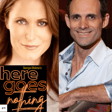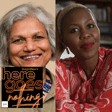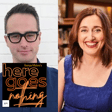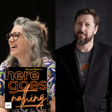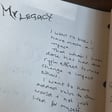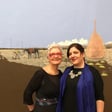
Episode 9: The Role of the Critic with Nina Levy
The role of the critic is a thankless one, and one whose influence is sadly waning as mainstream media abandons traditional criticism and resorts to reducing the arts to a mark out of five stars.
In this week's episode of Georgia Malone's Here Goes Nothing, Georgia welcomes Nina Levy: dancer, visionary, and writer: co-founder of the Seesaw arts magazine, and fierce defender of the importance of the critic's voice. This lively discussion includes insight into the way the critical voice has changed in recent years, reducing a critique to a poster quote, the logistics of writing about something you hated, and the truism that quality journalism must be paid for.
Nina Levy is a West Australian freelance arts writer and editor, and communications co-ordinator at Community Arts Network. At a national level Nina made her name as writer and critic for Dance Australia magazine, 2007-2020, co-editing the print publication 2016-2019.
Nina is best known in her home state for her work as dance critic for The West Australian newspaper, 2009-2018, and as co-founder of Seesaw Magazine, an online publication covering the arts. Seesaw Magazine was launched by Nina and co-editor Varnya Bromilow in 2017, in response to the decline in coverage of the arts by mainstream media. Nina was the magazine’s managing editor until September 2023 when publication was paused due to lack of funding.
For links to many of the areas that Georgia and Nina discuss, visit https://heregoesnothingpod.substack.com/
